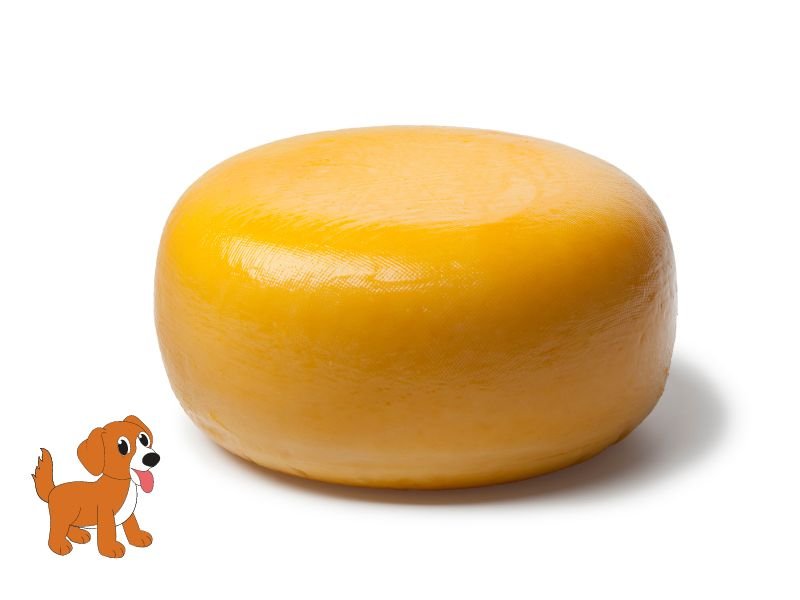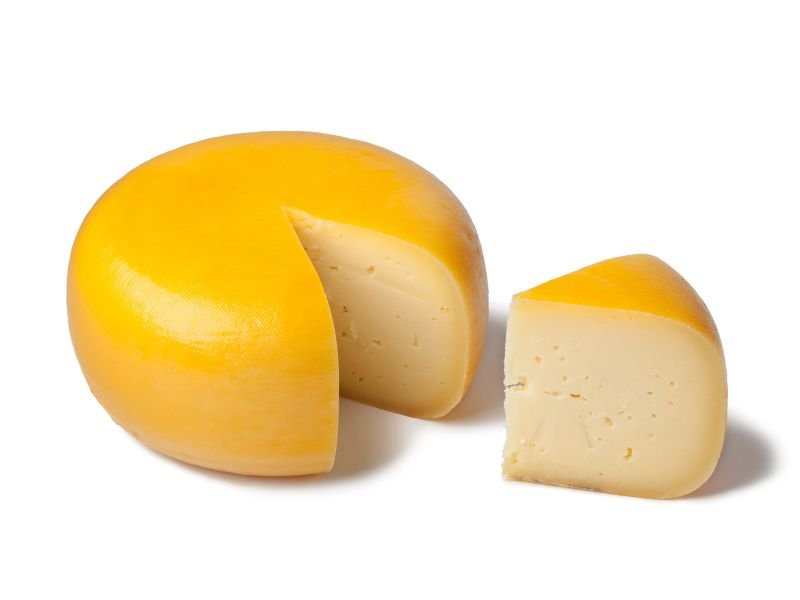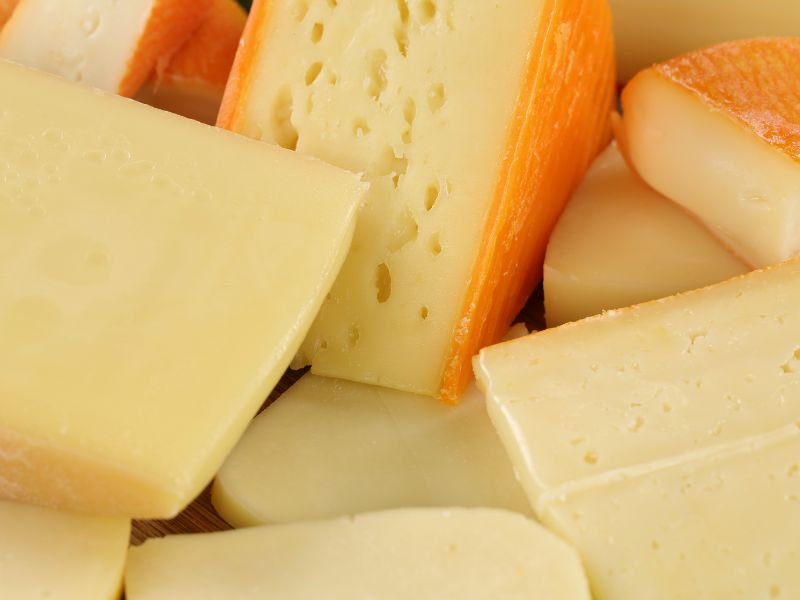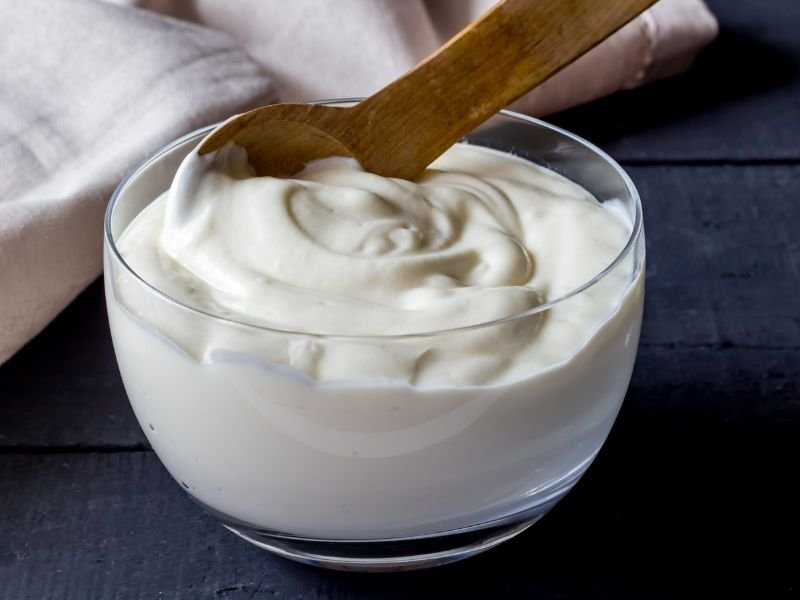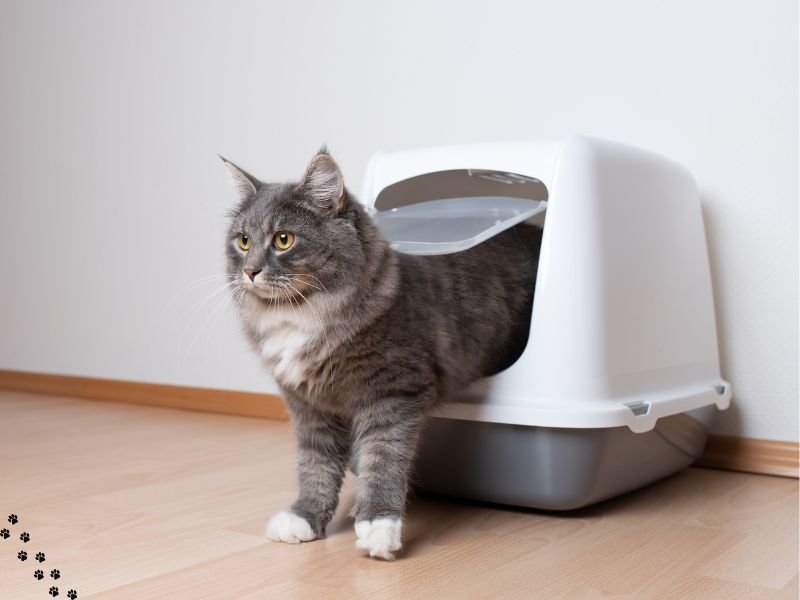Gouda cheese, with its distinctively nutty and creamy flavor, is a beloved treasure among cheese enthusiasts worldwide. Yet, as dog owners, it’s hard not to wonder if our furry friends can join in on the indulgence.
Naturally, we find ourselves pondering the burning question: can dogs eat Gouda cheese?
While it may seem harmless to share a slice or two with our loyal companions, there are crucial factors to consider when it comes to the health and well-being of our canine pals.
In this article, we will explore the potential benefits and risks associated with dogs consuming Gouda cheese, shedding light on whether we can safely share this delectable delight with our four-legged friends.
Table of Contents
- The Health Benefits and Risks of Gouda Cheese for Dogs
- Understanding the Nutritional Content of Gouda Cheese for Canines
- Safe Serving Portions of Gouda Cheese for Your Furry Friend
- Potential Allergic Reactions and Food Sensitivities to Gouda Cheese in Dogs
- Alternatives to Gouda Cheese for Dogs on Special Diets
- 5 Expert Tips on Incorporating Gouda Cheese Into Your Dog’s Balanced Diet
- FAQs About Can Dogs Eat Gouda Cheese
- Final Words
The Health Benefits and Risks of Gouda Cheese for Dogs
Gouda cheese is a popular type of cheese that many people enjoy, but can dogs safely consume this delicious dairy product?
It’s important to consider both the health benefits and potential risks before sharing this treat with your furry friend.
Health Benefits
Gouda cheese can be a good source of protein and calcium for dogs. Protein is essential for muscle growth and repair, while calcium plays a vital role in bone health.
Additionally, Gouda cheese contains vitamins A and B12, which are important for maintaining a strong immune system and healthy nerve function.
Risks and Considerations
While Gouda cheese can provide some nutritional benefits, it also comes with potential risks for dogs.
One of the main concerns is the high-fat content in this cheese. Excessive consumption of fatty foods can lead to weight gain, obesity, and even pancreatitis in dogs.
It’s crucial to monitor portion sizes and only offer Gouda cheese as an occasional treat.
Additionally, Gouda cheese contains lactose, a sugar present in milk products. Many dogs have lactose intolerance, which means they lack the enzymes needed to properly digest lactose.
Feeding Gouda cheese to a lactose-intolerant dog can result in digestive upset, including diarrhea and gastrointestinal discomfort.
It is important to note that every dog is different, and some may be more sensitive to Gouda cheese than others.
If you’re considering incorporating this cheese into your dog’s diet, it’s always best to consult with your veterinarian to ensure it aligns with your dog’s specific nutritional needs and any existing health conditions.
Understanding the Nutritional Content of Gouda Cheese for Canines
Gouda cheese is a popular type of cheese known for its mild and creamy taste. It is made from cow’s milk and is loved by many humans around the world.
However, when it comes to feeding our furry friends, we need to be aware of the nutritional content and how it can affect their health.
Gouda cheese is rich in several essential nutrients that can benefit dogs. It is a good source of protein, which is essential for muscle development and repair.
Additionally, Gouda cheese contains calcium, which is important for strong bones and teeth. It also provides vitamins A, B12, and D, which play a crucial role in maintaining overall health and boosting the immune system.
However, it is important to note that Gouda cheese is also high in fat and sodium. While some fat is necessary for dogs, excessive consumption can lead to weight gain and even obesity.
High sodium content may cause water retention and contribute to conditions like hypertension in dogs. Therefore, it is important to moderate the serving portions and consider the overall diet of your furry friend.
When it comes to feeding Gouda cheese to your dog, it is crucial to take into consideration their size, breed, and individual dietary needs.
It is always recommended to consult with a veterinarian before introducing any new food into your dog’s diet, including Gouda cheese.
A veterinarian can guide you on the appropriate serving portions and help you determine if your dog has any underlying health conditions that might be affected by the consumption of Gouda cheese.
Remember, moderation is key when it comes to feeding any type of cheese, including Gouda, to your dog.
It is important to keep in mind that cheese should never be the main component of your dog’s diet.
Instead, it should be considered as an occasional treat or added to their meals in small quantities.
By understanding the nutritional content of Gouda cheese and making informed decisions about feeding it to your dog, you can ensure that your furry friend enjoys the occasional indulgence while maintaining a balanced and healthy diet.
Safe Serving Portions of Gouda Cheese for Your Furry Friend
In order to ensure your furry friend enjoys the benefits of Gouda cheese without any negative health consequences, it is crucial to understand the appropriate serving portions.
Feeding your dog too much Gouda cheese can lead to digestive upset, weight gain, and potential long-term health issues.
As a responsible pet owner, it is your duty to provide your dog with a well-balanced diet that incorporates treats and snacks in moderation.
When it comes to serving Gouda cheese to your dog, portion control is key.
As a general guideline, it is recommended to limit your dog’s cheese intake to no more than 10% of its daily caloric intake.
This means that the serving size will vary depending on the size, age, and activity level of your dog.
For example, a small dog with low activity levels may only need a few small shreds or a smidgen as an occasional treat, while a larger, more active dog may be able to tolerate a small cube or thin slice as part of their balanced diet.
Remember, Gouda cheese should never replace a nutritionally balanced meal. It should be considered an occasional snack or training reward.
When introducing Gouda cheese to your dog’s diet, start with a small portion and monitor their reaction.
If they experience digestive issues such as diarrhea or vomiting, it is best to discontinue feeding Gouda cheese altogether.
Ensuring your dog’s overall well-being means being mindful of the amount of cheese they consume. Moderation is key in maintaining a healthy weight, proper digestion, and preventing any potential adverse reactions.
Potential Allergic Reactions and Food Sensitivities to Gouda Cheese in Dogs
In this section, we will explore the potential allergic reactions and food sensitivities that dogs may experience when consuming Gouda cheese.
While cheese can be a tasty treat for our furry friends, it’s essential to be aware of the possible adverse reactions that some dogs may have.
Common Allergic Reactions
Just like humans, dogs can develop allergies to certain foods, including Gouda cheese. Some common allergic reactions in dogs include itching, redness, swelling, hives, vomiting, diarrhea, and even difficulty breathing.
It’s crucial to monitor your dog closely after introducing any new food into their diet, including Gouda cheese, and watch for any signs of an allergic reaction.
Food Sensitivities
Food sensitivities are different from allergies and usually involve a dog’s difficulty in properly digesting specific foods.
While Gouda cheese is generally safe for dogs, some canines may experience digestive issues such as upset stomach, gas, or diarrhea when consuming it.
These sensitivities can vary from dog to dog, so it’s essential to pay attention to your pup’s individual tolerance and adjust their diet accordingly.
To determine if your dog has an allergy or sensitivity to Gouda cheese, it’s always recommended to consult with your veterinarian.
They can perform a thorough examination and recommend any necessary tests or dietary adjustments if needed.
Moderation and Monitoring
While Gouda cheese can be enjoyed by many dogs, it’s crucial to remember that moderation is key.
Cheese should never become the primary source of nutrition for your furry friend, as it can lead to weight gain and other health issues.
Limiting the amount of Gouda cheese in your dog’s diet and ensuring it is served in small, occasional portions can help prevent any adverse reactions and maintain a well-balanced diet.
If you notice any signs of an allergic reaction or food sensitivity in your dog after consuming Gouda cheese, it’s best to discontinue feeding it to them and seek guidance from your veterinarian.
They may recommend alternatives or eliminate cheese altogether, depending on your dog’s specific condition.
It’s important to be attentive and cautious when introducing new foods into your dog’s diet.
Monitoring your furry friend’s response to Gouda cheese and being aware of potential allergic reactions or sensitivities can help keep them safe and healthy.
Alternatives to Gouda Cheese for Dogs on Special Diets
When it comes to providing a balanced diet for your dog on a special diet, it’s essential to explore alternatives to Gouda cheese.
While Gouda cheese is a tasty treat that many dogs enjoy, it may not be suitable for canines with specific dietary needs or restrictions.
Here are some alternative options that can still provide a delicious and nutritious addition to your furry friend’s meals.
Cottage Cheese
A great alternative to Gouda cheese is cottage cheese. It is high in protein and low in lactose, making it easily digestible for dogs.
Cottage cheese can be served as a standalone treat or mixed with your dog’s regular food to enhance its flavor and texture.
Hard Cheese Varieties
If your dog enjoys the texture and taste of Gouda cheese, consider offering them small amounts of other hard cheese varieties. Cheddar, Swiss, or Parmesan cheese can be excellent alternatives.
However, keep in mind that moderation is key, as these options should still be given as occasional treats due to their high fat content.
Plain Yogurt
Another option to consider is plain yogurt. It contains beneficial probiotics that can improve your dog’s digestive health.
Just ensure that the yogurt is free from added sugars or sweeteners, as those can be harmful to dogs. You can offer it as a standalone snack or mix it with your dog’s food for added moisture and flavor.
Note: Before introducing any new food to your dog’s diet, it is crucial to consult with your veterinarian. They can provide guidance based on your dog’s specific needs, allergies, and sensitivities.
Additionally, remember that treats and alternative options should never exceed 10% of your dog’s daily caloric intake to maintain a balanced diet.
By considering these alternatives to Gouda cheese, you can still provide your dog with flavorful options that align with their special dietary requirements.
5 Expert Tips on Incorporating Gouda Cheese Into Your Dog’s Balanced Diet
Gouda cheese can be a flavorful addition to your dog’s diet, but it’s important to ensure that it is incorporated in a balanced and safe manner.
Here are some expert tips to keep in mind when offering Gouda cheese to your furry friend.
- Moderation is key: While Gouda cheese can be a tasty treat for your dog, it should be given in moderation. Too much cheese can lead to weight gain and digestive issues, so offering it as an occasional snack rather than a regular part of their diet is best.
- Consider your dog’s needs: Every dog is unique and may have different dietary requirements. If your dog has special dietary needs, such as being on a low-fat or lactose-free diet, it’s best to consult with a veterinarian before introducing Gouda cheese. They can guide you on whether it is suitable for your dog and suggest alternatives, if necessary.
- Choose low-sodium and low-fat options: When selecting Gouda cheese for your dog, opt for varieties that are low in sodium and fat. This helps to minimize the risk of excessive sodium intake and weight gain. Look for Gouda cheese options specifically formulated for dogs, or choose natural, unprocessed varieties without added flavorings or preservatives.
- Watch out for any adverse reactions: As with any new food, it’s essential to monitor your dog for any adverse reactions or allergies. If you notice symptoms such as vomiting, diarrhea, or skin irritations after offering Gouda cheese, it may be a sign of sensitivity or intolerance. In such cases, it’s best to discontinue feeding your dog Gouda cheese and consult with a veterinarian.
- Use Gouda cheese as a training tool: Gouda cheese can be a great motivator for training sessions with your dog. Cut it into small, bite-sized pieces and use them as rewards during obedience training or for teaching new tricks. Remember to factor these treats into your dog’s overall calorie intake to maintain a balanced diet.
Remember, Gouda cheese should never replace your dog’s regular meals or become a significant portion of their diet.
It’s important to provide a well-rounded, balanced diet that consists primarily of high-quality dog food specifically formulated for their nutritional needs.
FAQs About Can Dogs Eat Gouda Cheese
Is it safe to give dogs Gouda cheese?
Yes, dogs can generally eat Gouda cheese, but it should be given in moderation. Gouda cheese is not toxic to dogs, but it is high in fat and can cause digestive issues if consumed in large quantities.
Can dogs be lactose intolerant?
Some dogs may be lactose intolerant, which means they lack the enzyme to break down the lactose found in dairy products. It’s possible for dogs to have an adverse reaction to Gouda cheese or any other dairy product, resulting in digestive discomfort and diarrhea.
Is Gouda cheese bad for dogs’ teeth?
Gouda cheese is not necessarily bad for dogs’ teeth, but it is sticky and can get stuck in between their teeth, leading to tooth decay if not properly cleaned. It’s important to brush your dog’s teeth regularly to maintain their dental health.
Are there any health benefits of feeding Gouda cheese to dogs?
While Gouda cheese can be a tasty treat for dogs, it doesn’t offer significant health benefits. However, it does contain protein and calcium, which can be beneficial to your dog’s diet if given in moderation.
What are some alternatives to Gouda cheese for dogs?
If you’re looking for alternatives to Gouda cheese, you can consider giving your dog small amounts of low-fat cottage cheese, plain yogurt, or small chunks of lean-cooked meat as a special treat.
Final Words
In conclusion, dogs can eat Gouda cheese, but it should be given as an occasional treat and in moderation.
It is important to watch out for any adverse reactions or digestive issues and consider the individual dog’s sensitivity to dairy products.
Providing a balanced and appropriate diet is key to maintaining your dog’s overall health.

